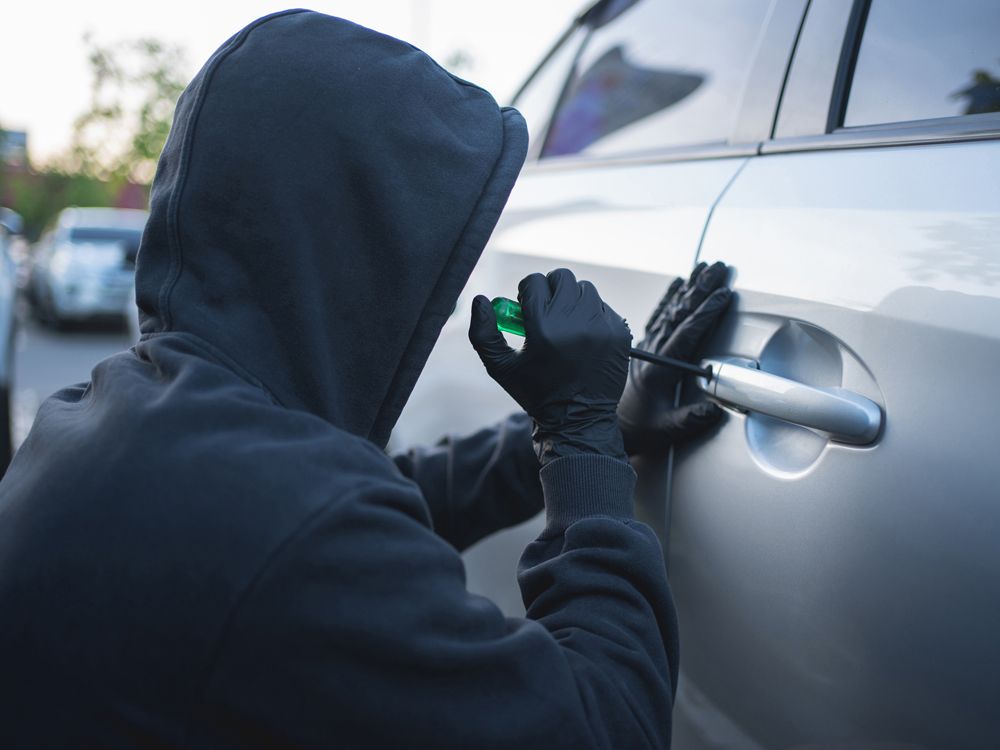
Canadian drivers are growing increasingly concerned about auto theft , but the persistently high cost of living is forcing them to make concessions about vehicle safety, according to a new report by The Co-operators Group Ltd., an insurance co-operative.
The survey, which polled 1,000 vehicle owners with driver’s licenses across Canada, found that nearly half are more concerned about auto theft than ever amid increasingly sophisticated theft tactics.
Almost half of those surveyed have been directly or indirectly affected by vehicle theft, whether through having their own vehicles stolen, break-ins, or knowing someone else who has experienced it.
“We’re seeing a level of sophistication in vehicle theft that wasn’t common even five years ago,” deputy chief Nick Milinovich, Peel Regional Police, said in a press release . “These aren’t one-off incidents. They’re coordinated, fast-moving and often linked to larger criminal operations.”
The emotional toll is matched by the financial implications.
Over a third (36 per cent) of Canadian drivers reported feeling unsafe due to the persistent threat of auto theft and 63 per cent said that the emotional distress and sense of violation are lasting impacts. But even more expressed concern about the financial burden of replacing or repairing their vehicle (72 per cent) and paying increased insurance premiums (72 per cent).
“Whether the cost is emotional or financial, Canadians simply cannot afford to face the ongoing crisis of vehicle theft,” Tara Laidman, vice-president of home and auto insurance at Co-operators, said in the release. “Disruptions and uncertainty in supply chains will only drive-up costs and replacement times, compounding an issue that has already sent shockwaves through communities.”
The results showed that Canadians rely heavily on their vehicles, with 73 per cent needing access to their car to complete essential tasks.
Many of them are taking basic steps to protect their vehicles such as making sure to lock doors (88 per cent) and not leaving a running vehicle unattended (75 per cent). However, the use of more advanced, technology-based solutions is much lower.
Only 29 per cent of Canadians are using an anti-theft alarm system and even less are using tools such as a steering wheel lock (13 per cent), window VIN etching (11 per cent), a TAG anti-theft system (10 per cent) or a faraday pouch (eight per cent).
Many of them cite cost as a barrier, but few are aware of the emotional reassurance or financial benefits, such as reduced insurance premiums, that come with these tools.
“The cost of safety is running up against persistent high cost-of-living, forcing Canadians to make concessions,” Laidman said. “Upfront investments in technology can reduce the emotional and financial burden of vehicle theft.”
According to the survey, nearly half (46 per cent) of Ontarians have had personal or second-hand exposure to vehicle theft, the highest in the country. They are also the most likely to believe that stronger preventive measures are needed.
“Awareness is key, but so is access — access to prevention tools, partnerships and consistent action across all sectors,” Milinovich said.
Honda's production shift due to U.S. tariffs could open export opportunities for Canadian plant Honda taps the brakes on $15-billion EV project in Ontario amid tariffs and market slowdownBut preventative measures can only do so much.
“Vehicle owners are burned out, and the onus is on the insurance industry, government and police to stay focused on our efforts to reduce the burden vehicle theft is placing on Canadians,” Laidman said.
• Email: [email protected]
Bookmark our website and support our journalism: Don’t miss the business news you need to know — add financialpost.com to your bookmarks and sign up for our newsletters here.












 Bengali (Bangladesh) ·
Bengali (Bangladesh) ·  English (United States) ·
English (United States) ·